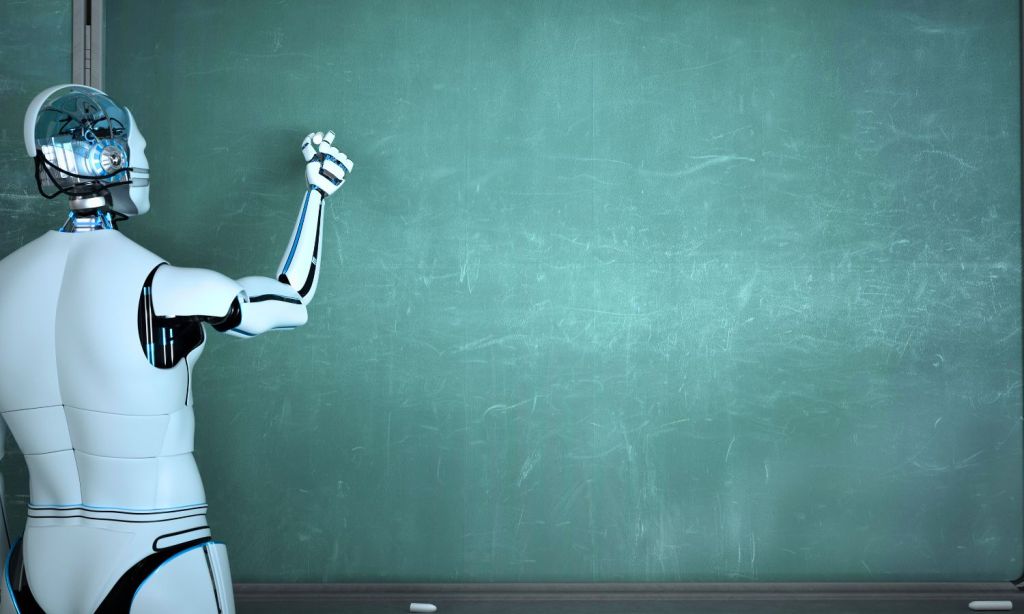Artificial intelligence will be allowed in all Australian schools from next year. Students will be taught how to appropriately use AI programmes like ChatGPT when a new framework is rolled out for term one.
Education Ministers have been grappling with the AI question ever since ChatGPT, owned by the American company OpenAI, rose to prominence late last year. They met in Hobart on Thursday to discuss a new education framework that incorporates AI developments and they have confirmed that it will be approved.
The technology uses large language model training and generative AI principles to respond to users questions. It can be used to write essays, answer homework questions, and otherwise cheat the education system.
State governments, starting with NSW, began banning the use of ChatGPT and other AI technology in classrooms and in school work in January.
However, the bans have been criticised as “knee-jerk” as the rules can’t actually stop young people from using it. In addition, while public schools might be able to limit its use, private schools have been training their pupils on how to effectively use AI technology.
Federal Education Minister Jason Clare raised concerns in July that public school students would be left behind when announcing a draft framework for the use of AI.
“This is the sort of thing that students are going to need to learn how to use properly,” Clare told Sky News back in July.
“You can’t just put it away and assume that students won’t use it. But at the same time, I want to make sure that students are getting the marks they deserve, and can’t use it to cheat.”
A draft version of the framework, released in July for public consultation, said that homework and assignments would likely have to be re-structured because of the technology.
“Assessments may need to be modified to avoid or use generative AI tools, so that they continue to ensure outputs will be a fair and unbiased evaluation of students’ performance, skills, and knowledge,” it says.
The framework has since been revised by the National AI Taskforce and will be released publically in the coming weeks when it will be implemented by state and territory education ministers.
Should AI Be Banned in Schools?
The question of whether schools should allow AI or not is fairly redundant given that there is absolutely nothing they can do to stop it. Although Australia has given the go-ahead to use AI in schools, it’s done so with a sense of inevitability.
Other attempts to ban the use of ChatGPT have been made in New York, Los Angeles, and other US districts while universities in the UK have warned students that using it may be considered cheating.
In Canada, Professor Emeritus in Biochemistry at the University of Toronto, Dr Boris Steipe, has said that his students are free to use generative AI as much as they’d like given it’s impossible to escape its influence.
“The world is changing and if we don’t prepare our students to work with AI resources, we are not preparing them for the world. If we spend our time on making our courses AI-proof — assigning hand-written papers or such — we are missing the point of education,” Steipe said.
“We need to teach our students how to have the AI think with them, not for them. This is the most important goal: if we don’t achieve that, the AI will become their competitor,” he added.
Steipe is the founder of the Sentient Syllabus Project, a group of academics educating other academics on how they can adapt their courses in the face of the increasing use of AI.
However, while education is one thing, there are likely to remain concerns over the privacy of young people and the legal and ethical risks of using the technology. Clare has said that he wants to ensure the data of young people isn’t being harvested by AI organisations and that proper safeguards are in place to protect them from inappropriate content.
On the darker end of the spectrum of issues lies the use of generative AI imagery. Paul Clark, the Office of the eSafety Commissioner Executive Manager, told a Federal parliamentary inquiry that AI could be used by students to target teachers and other pupils.
“We have now received our first complaint around AI-generated sexually explicit content produced by students to bully other students,’’ he said.
“This is an open matter and we can’t discuss the detail and investigation. The issue of AI really accelerates the ability to manipulate voices and images, which we see as a potential risk to increase cyberbullying against students, but also the targeting of teachers.’’
Deepfake porn in the AI era is a whole other minefield to navigate and one that schools, and the rest of society, are going to have to struggle to deal with.
Back in January, when states began banning AI in classrooms, AI expert Dr Stefan Popenici said that the rise of AI presents “huge challenges” but that the technology was “out of the bottle.”
“We need education to be able to find answers,” he said.
Related: Australia’s Secret Weapon in the Battle Against Bushfires This Summer Could Be AI
Related: AI Photo Editing, a Thermometer and 4 of the Cool Features of Google Pixel 8
Read more stories from The Latch and subscribe to our email newsletter.







